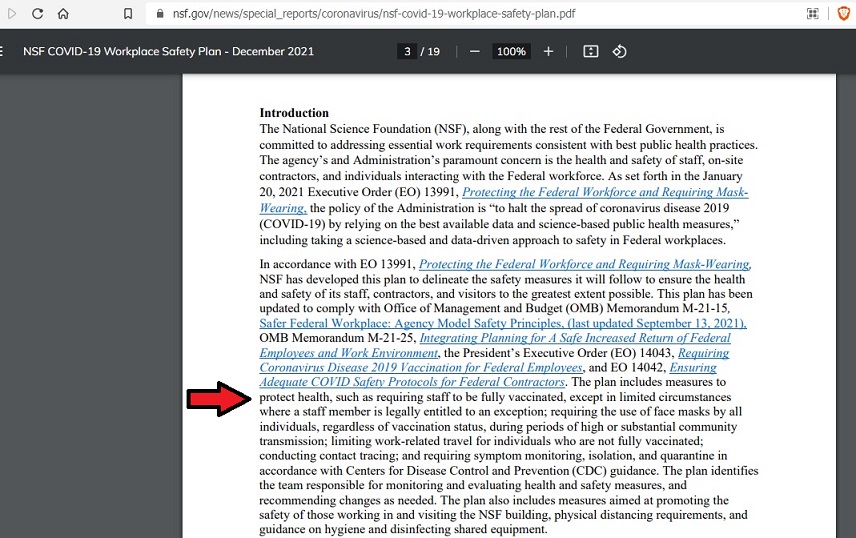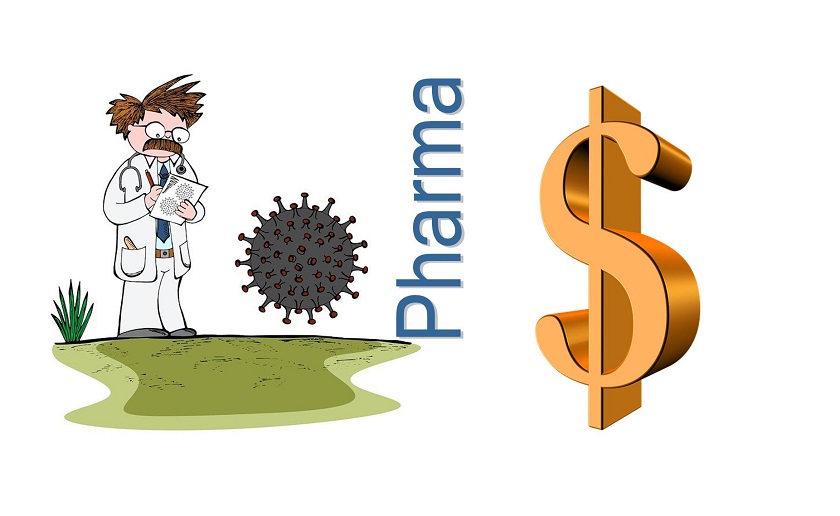Presenting estimates and assumptions as science has become norm in today’s system of information. The latest such research claims “estimates” of COVID-19 infection chances at various places, but the study has links to the vaccine industry.
Leftist news source Miami Herald published a story about the study on Wednesday. The story wrote:
It’s well known that certain places and activities carry varying risks of coronavirus exposure, but a new study takes away much of the guesswork, offering clear estimates instead.
While the conjectural nature of the study is obvious from the Miami Herald story, the published study itself has questionable credibility because of links to the vaccine/pharma industry. Published in the journal Environmental Science & Technology, the study is titled “Practical Indicators for Risk of Airborne Transmission in Shared Indoor Environments and Their Application to COVID-19 Outbreaks”.
With the deceptive-looking mathematical calculations in percentages of infection spreading chances and conclusion that staying silent while outdoors and masked would minimize infection risk, this study has little solid science to offer. Not surprisingly, the study praises vaccines at a few places with no real scientific evidence to back up its claims.
But the reality check for the study’s credibility comes in its funding source and potential conflicts of interest – or “competing interests” as it is termed in scientific papers. The lead (first) author Z. Peng and corresponding author J.L. Jimenez have both received funding from NSF – the National Science Foundation.

NSF is US government, which via the National Institute of Health is co-owner of Pfizer vaccine’s patents – means earning from vaccine sales. NSF’s vaccine agenda is therefore not hidden from public. Just last month, NSF came up with a COVID-19 Workplace Safety Plan – which in its introduction reveals that “requiring staff to be fully vaccinated, except in limited circumstances” is part of its plan.

The NSF plan rewards the vaccinated by exempting them from getting tested for COVID before or after domestic travel and by the same token punishing the unvaccinated via systematic persecution.
But the NSF is not the only source of this study’s funding with a direct financial link to the vaccine industry. Another researcher T. Greenhalgh was “supported” by ESRC – the Economic and Social Research Council, a British organization that funds research in social and economic fields. It is one of the UK Research and Innovation (UKRI) councils. So who funds or does business with UKRI? The website’s Research Intelligence in Business lists its Business Engagement Forum members.
Standing out among those names are two leading manufacturers of COVID-19 vaccines: Pfizer and AstraZeneca.

It is not obvious from the website how much the two vaccine makers pay the organization. But this partnership creates a direct conflict of interest for the research that praises vaccines and attempts to further the narrative of a highly contagious and deadly pandemic – which has not been proven by evidence.
Yet another researcher on the team behind the study, L. Bourouiba, “acknowledged” L.B. CIHR and Fields, and NSF. CIHR (Canadian Institutes of Health Research) has a history of controversial connections to pharma, including Pfizer. In 2009, Pfizer executive Dr. Bernard Prigent was appointed to CIHR, raising questions.
The study in question about COVID infection risk is not only based on weak science and assumptions, it is directly linked to vaccine manufacturers – just like most every other study coming out to further the story of the so-called pandemic.



